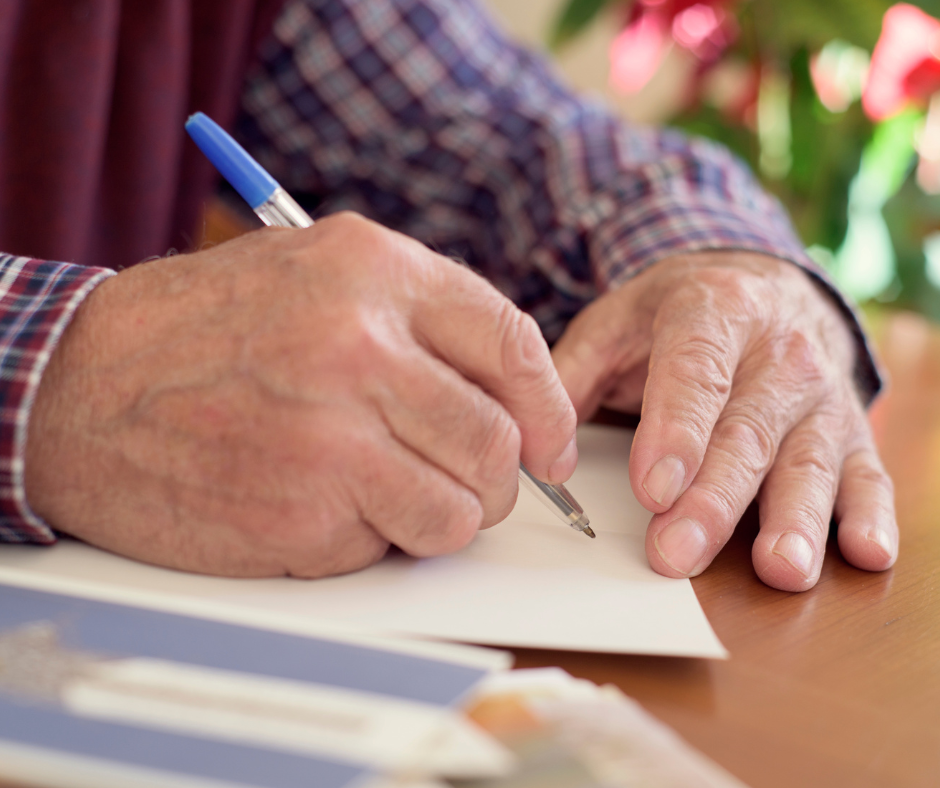Thank You Cards Funeral: A Guide to Expressing Gratitude
Losing a loved one is one of the most challenging experiences anyone can face. Amid the grief and emotional turmoil that follows a funeral, it’s often easy to overlook the importance of expressing gratitude to those who have offered their support. Writing thank you cards after a funeral is a meaningful way to acknowledge the kindness and compassion shown by family, friends, and colleagues during a difficult time. This guide will explore when to write thank you cards after a funeral, who should send them, and other essential information to help you navigate this sensitive task.

When to Write Thank You Cards After a Funeral
The timing of sending thank you cards funeral can vary, but it’s generally best to aim for sending them within two to three months after the service. This timeframe allows you to process your emotions and gather the necessary information while still being timely in your gratitude. It’s important to remember that everyone grieves differently, and some may need more time before they can tackle writing these cards.
If you are overwhelmed by the emotions following the funeral, don’t feel pressured to rush. Instead, take your time to reflect on the support you received and who deserves acknowledgment. It’s perfectly acceptable to send thank you cards later if that aligns better with your emotional state. Just ensure that you communicate your gratitude within a reasonable time frame so that recipients feel appreciated for their gestures.

Who Should Send Thank You Cards?
Typically, the responsibility for sending thank you cards funeral lies with the closest family members of the deceased. This may include spouses, children, or siblings, as they are often the ones most impacted by the loss and best positioned to convey heartfelt gratitude. However, in larger families or when circumstances dictate, it may be appropriate for multiple family members to participate in writing and sending cards.
If you are part of a family unit, consider discussing how to divide the task among relatives. Each person can take a specific group of people to thank, such as extended family, friends, or colleagues. This approach not only lightens the workload but also ensures that everyone who offered support receives recognition. In situations where children are old enough to understand the concept of gratitude, involving them in the process can also be a valuable lesson.
In addition, if your loved one had close friends or colleagues who played a significant role in their life, it may be worthwhile to include them in the thank you card list. Whether they provided emotional support, organized meals, or attended the service, acknowledging their kindness can help maintain those vital connections.
What to Include in Thank You Cards
When writing thank you cards funeral, it’s essential to make them personal and heartfelt. Each card should express genuine appreciation for the specific support the recipient offered. Here are some key elements to include:
- Acknowledge the Gesture: Start by thanking the person for their specific act of kindness, such as attending the funeral, sending flowers, or providing meals. Mentioning their particular gesture makes the thank you card more personal and meaningful.
- Share a Memory: If appropriate, share a fond memory or anecdote related to the deceased and the recipient. This connection can add warmth to the card and remind the recipient of the special bond they had with your loved one.
- Express Your Feelings: Be open about your feelings of gratitude and how much their support meant to you during this challenging time. Letting them know that their presence and kindness provided comfort can help strengthen the bond between you.
- Offer an Invitation: Depending on the relationship you had with the recipient, you may want to extend an invitation for a future gathering or visit. This gesture shows that you value their support and want to maintain the connection.
Conclude Warmly: End the card with a heartfelt closing, such as “With all my gratitude,” or “Sincerely thankful.” Your signature adds a personal touch, making the message feel even more genuine.
Tips for Writing Thank You Cards
Writing thank you cards funeral can feel like a daunting task, especially when you’re dealing with grief. Here are some tips to help make the process easier:
- Create a List: Before you begin writing, compile a list of everyone who should receive a thank you card. This can help ensure that no one is overlooked during the process. Organize the list by categories, such as family, friends, and colleagues, to simplify the writing task.
- Keep it Simple: You don’t have to write a lengthy message for every card. A few heartfelt sentences expressing gratitude are often enough to convey your feelings. Focus on sincerity rather than length.
- Use Pre-printed Cards: Consider using pre-printed thank you cards to save time. Choose a design that resonates with you and aligns with the sentiments you want to express. Personalize them with a handwritten note for an extra touch.
- Set a Writing Schedule: If the task feels overwhelming, break it down into manageable chunks. Set aside dedicated time each day to write a few cards until the list is complete. This approach can make the process feel less burdensome.
Ask for Help: If you’re struggling to write thank you cards or feel too overwhelmed, consider asking family members for assistance. They can help with writing, addressing envelopes, or even gathering addresses if needed.
What Not to Include
While it’s essential to express gratitude in thank you cards funeral, there are certain things to avoid to maintain a respectful tone. Here are some guidelines:
- Avoid Guilt: Steer clear of language that may imply obligation or guilt, such as “I wish you had attended the funeral.” Instead, focus on appreciation for their support, regardless of their presence at the service.
- Don’t Mention Gifts: While it’s polite to acknowledge gifts received, avoid going into detail about the items or contributions. Instead, emphasize the kindness of the gesture rather than the material aspect.
Skip Comparisons: Refrain from comparing the level of support received from different individuals. Every gesture, no matter how big or small, is meaningful, and expressing gratitude should reflect that.
The Importance of Gratitude in Grief
Writing thank you cards funeral not only acknowledges the kindness of others but also plays a vital role in the grieving process. Expressing gratitude can help create a sense of closure and foster connections during a time of loss. Acknowledging the support you received reinforces the bonds with family and friends, reminding you that you are not alone in your grief.
Additionally, the act of writing thank you cards can be therapeutic. It encourages reflection on the positive aspects of your loved one’s life and the relationships they fostered. Each card can serve as a moment to pause, remember, and celebrate the love and connections that remain even after death.

Final Thoughts
In conclusion, sending thank you cards funeral is a thoughtful way to acknowledge the kindness and support received during one of life’s most challenging moments. By taking the time to express gratitude, you not only honor the memory of your loved one but also reinforce the bonds with those who cared for you during your time of need.
Whether you choose to write the cards personally or involve other family members in the process, ensure that each message conveys heartfelt appreciation. The effort put into sending these cards can provide comfort and a sense of connection as you navigate the grieving process, creating a lasting legacy of love and gratitude.
Thank You Cards Funeral FAQs:
Yes, children can definitely help write thank you cards after a funeral. Involving them in the process can be a valuable lesson in gratitude and empathy. Depending on their age, they can assist by addressing envelopes, signing their names, or even writing short messages. This involvement can help them process their feelings about the loss while teaching them the importance of acknowledging the kindness of others. It can also strengthen family bonds during a challenging time.
Keeping track of who you’ve sent thank you cards to can be managed easily with a simple system. Start by creating a list that includes the names of recipients and the specific support they provided. As you write and send each card, mark them off the list. Alternatively, you can maintain a spreadsheet to record the details. This way, you can ensure that everyone receives recognition for their kindness and avoid accidentally sending duplicate cards.
If you forget to send a thank you card, don’t worry. It’s common to overlook certain details during a period of grief. If you realize you haven’t sent a card to someone, simply reach out with a heartfelt message, whether in writing or verbally. You can explain that you’ve been preoccupied with your emotions and still wish to express your gratitude for their support. Most people will understand the challenges of grieving and appreciate your sincere acknowledgment.
Yes, there are many alternative ways to express gratitude besides traditional thank you cards. Consider hosting a small gathering or a memorial service to honor your loved one while thanking those who supported you. Alternatively, making a donation to a charity in your loved one’s name can also be a meaningful gesture. You could also send a heartfelt email or make a phone call to express your gratitude directly. The key is to ensure your message is sincere and reflects your appreciation.


